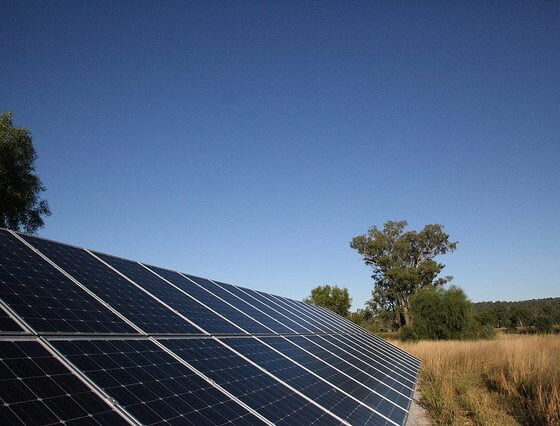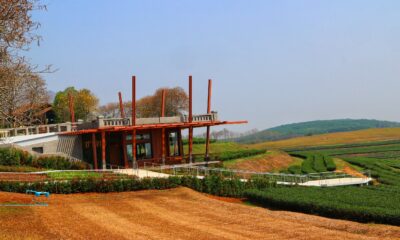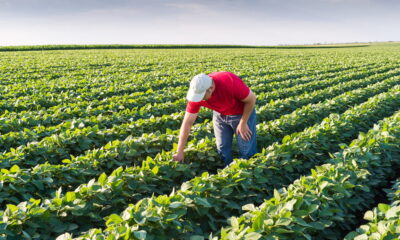

Energy
Environment secretary labels solar farms a ‘blight on the landscape’
Environment secretary Liz Truss is facing criticism after commenting that solar farms are a “blight” on the UK countryside as well as having a negative impact on the agriculture sector. She has also announced that subsidies for the solar industry are to be cut.
Blue & Green Tomorrow is currently running a crowdfunder to ensure its survival. Please pledge.
Truss announced that she would end grants worth £2 million a year available for farmers that generate renewable energy through solar made available under the Common Agriculture Policy from January 2015.
The government has previously announced that subsidies for large-scale solar farms under the renewables obligation scheme would be cut, despite the scheme not coming to an end for another two years.
The environment secretary argued that there are already 250 solar farms in the UK, with more in the pipeline, which would take up 10,000 football pitches worth of land. She continued that the whole food chain represents £100 billion to the UK economy and it is “a real problem” that agricultural land is being used for generating solar energy.
Speaking to the Mail on Sunday, Truss said, “I’m very concerned that a lot of land is being taken up with solar farms. They are ugly, a blight on the countryside, and villages are pushing production of meat and other traditional British produce overseas.”
“I’m not against them per se – they’re fine on commercial roofs and school roofs – but it’s a big problem if we are using land that can grow crops, fruit and vegetables. We import two-thirds of our apples, and using more land for solar panels makes it harder to improve that.”
In response to the subsidy cuts, Alasdair Cameron, a renewable energy campaigner at Friends of the Earth, noted that changes to renewable energy policies could cost jobs, investments and energy security.
He added, “Done correctly, solar farms can go hand-in-hand with food production, boost biodiversity and deliver clean electricity to the nation. Poorly-sited solar farms should be dealt with through the planning system and sensible policy, not knee jerk response to appease reactionary voices.”
The Solar Trade Association also echoed these thoughts, commented that it is “damaging and incorrect” to suggest that solar farms are in conflict with food production.
Leonie Greene, head of external affairs at the organisation, commented, “The land is still available for farming – the solar fixings only take up 5% of the land. This means plenty of room for continued agricultural practices such as sheep, geese or chicken farming.
“As far as farm payments are concerned, solar should really be treated in the same way as orchards or fields with trees, where animals continue to graze the land in between.”
Photo: Kate Ausburn via Flickr
Further reading:
Changes to solar subsidies threatens jobs and investor confidence
DECC plans to scrap solar farm subsidy will ‘undermine investment’
EU approves UK’s renewable subsidy scheme and capacity market
Renewables to compete for £300m subsidies but solar industry penalised
Friends of the Earth pledge support in solar subsidy judicial review against Ed Davey


 Environment12 months ago
Environment12 months agoAre Polymer Banknotes: an Eco-Friendly Trend or a Groundswell?

 Features11 months ago
Features11 months agoEco-Friendly Cryptocurrencies: Sustainable Investment Choices

 Features12 months ago
Features12 months agoEco-Friendly Crypto Traders Must Find the Right Exchange

 Energy11 months ago
Energy11 months agoThe Growing Role of Solar Panels in Ireland’s Energy Future






























